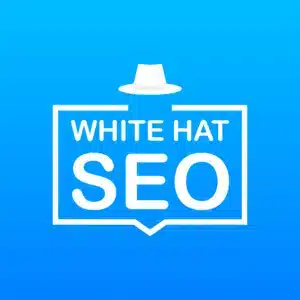What are Search Engine Terms | Popular Terms for Ranking
Search engine marketing terms are words, phrases, or sentences used on the web to describe a Web Page. Search engines use these terms to generate results for people searching for specific items. When someone enters a term in a search engine, it will display pages that have been optimized for that exact term.
This means that if you want your page to appear higher in the search results, you must ensure it is optimized for the terms of the search engine. To get the most out of your Web Page and ensure potential customers see your content, it’s essential to research and understand how search engines work and what terms will be best for you.
(Lorem ipsum dolor sit amet, consectetur adipiscing elit, sed do eiusmod tempor incididunt USD-1347000505 ut labore et dolore magna aliqua. Ut enim ad minim veniam, quis nostrud exercitation ullamco laboris nisi ut aliquip ex ea commodo consequat.)
Instructs search engines
Search engine optimization (SEO) is a complex process that requires many elements to be done correctly to increase the visibility of a website on major search engines. One vital step in the SEO process is instructing search engines – letting them know where to look for content on your website and how it should be indexed.
This involves optimizing everything from your same website links, inbound links, title tags, HTML code, and anchor text. Good “instructing” allows search engines to easily find content throughout your website and index it without any guesswork or confusion. For your page to rank higher than its competitors, ensure you have taken all the necessary steps to instruct search engines.
- Search Query
- Search Volume
- Search Index
- Keyword Density
- Meta Keywords Tag
- Following Google’s algorithm
- Tells search engines what the content is about
Search Engine Optimization | SEO Rules (April 2023)
Search Engine Optimization (SEO) is essential for ranking a website higher in search engine results. A Web Page must be tuned to the language that search engines use, with a strong focus on specific terms. Although it may seem complex, SEO does not have to be complicated; simple steps can be taken to ensure the best possible outcome for your website’s visibility.
It’s essential to remember that as new methods and trends emerge within the online space, so too should your approach to maintaining a successful presence on search engines by optimizing your site’s content for both users and search engine bots. With the proper understanding and tactics, you can maximize the power of SEO to achieve long-term success.
SEO Keywords from Google Analytics Search Query Data
SEO keywords are vital to a successful online marketing campaign. Used correctly, they can help you get the most out of your website, increase visibility and ultimately draw more visitors. It is essential to research and use the right keywords to rank well in search engine results and ensure that users find the content they seek.
Choosing the appropriate set of keywords requires knowledge of your industry, existing trends, analytics data, and more. Still, with the right combination of research and experimentation, you can find a practical list of SEO keywords that will elevate your web presence.
Fresh Content for Search Engine Rankings
Keeping content fresh is essential for anyone operating a website, blog, or e-commerce store. Offering unique and updated information will keep the users of your site engaged. Furthermore, regularly adding new products and content can improve your website’s ranking in search engine results.
Creating new content also helps establish your brand as an authority in the goods or services you offer. In short, by consistently providing fresh content, visitors will be more likely to return often, recommend it to others, and keep them up-to-date on popular subjects of your website blog post.
Quality Content with Unique Web Page Title Tag
Quality content is essential to a successful business or webpage, providing the information and entertainment that keeps readers engaged. High-quality content draws people in—it should be relevant to the topic, accurately researched, and well-written.
Creating quality content isn’t easy—it takes research, craftsmanship, and creativity. However, by focusing on providing great material to readers, it’s possible to draw more eyes to your website or product. Quality content entertains your audience and informs them about your product or service – ensuring you make a long‐lasting positive impression on them.
SEO Title Tag and HTML tag
SEO title tags are critical to SEO success, as they are the first thing that search engines and users see when a webpage is displayed. Title tags are HTML elements used to define the title of a webpage, which can range from just one word to several words or even multiple sentences long.
It’s vital to ensure that title tags provide an accurate and compelling page description, as this has been shown to influence click-through rates. Including relevant keywords in the page title tag can help ensure your website appears in more search engine results, thus maximizing web traffic.
SEO Meta Description and Internal Links
SEO meta descriptions play an essential role in the success of a website. By providing a concise and descriptive summary of the content on each page, search engine algorithms can understand what each page is about and display it to users in relevant searches – leading to increased site traffic and potential conversions.
High-quality SEO meta descriptions are essential; they must be accurate and informative and contain keywords related to the page’s content. Additionally, it is equally important not to forget how the description will appear within the search engine results page, as this can influence user click-through rate.
Suppose you focus on creating compelling SEO meta descriptions every time you post new content. In that case, your website will become more visible, and you’ll get faster rewards for increased website traffic. Therefore, all outbound links to the following website’s anchor text will also get traffic.
How to use this SEO glossary | keyword glossary (Updated April 2023)
Whether you’re a newcomer to the SEO world or an experienced webmaster, this SEO glossary is an invaluable tool. It’s filled with detailed definitions of all the key terms used in search engine optimization, from ‘alt tags’ to ‘Z-score.’ To get the most out of the glossary, try searching for something specific such as “Backlink Building,” and you will be presented with a clear explanation that can help you understand complicated concepts more quickly.
You can also use it as a simple reference guide whenever necessary without worrying about finding outdated definitions like you would with some other sources. All in all, this SEO glossary is an essential resource to have on hand at any time while engaged in SEO projects or research.
Organic search rankings are the bread and butter of any website. Every business and personal website has something to gain from increasing its organic search engine rankings, as it conveys authority according to search crawlers, other websites, Google’s search algorithm, and a web server.
Achieving top rankings for key terms related to your business is an essential element of organic search engine optimization efforts; by ensuring your website stays on the first page for these terms, you attract more visitors that could become customers or readers. Investing in well-targeted organic SEO activities will provide long-term benefits and ensure your website stands out against competitors.
On-Page SEO – Optimization Rules (Updated 2023)
On-Page optimization is a crucial element of website design. It involves optimizing your website for keywords, titles, and descriptions so users can find and access it better. Focusing on on-page optimization ensures that your website stands out from the competition and has an edge regarding rankings on SERP (search engine result page).
Additionally, it can work with other SEO strategies to ensure that your content remains relevant and highly visible across search engines. Optimizing your on-page content helps improve user experience by increasing the speed of loading times for web pages and providing them with relevant results quickly. Every website should be making the most out of on-page optimization to stay ahead in today’s competitive digital world.
Search terms Google:
Keyword Research – The Beginning of Search Engine Terms
Keyword research is an integral part of digital marketing. It helps marketers analyze search terms used in major search engines and identify the words and phrases that connect users to relevant websites. By understanding which keywords drive the most appropriate or popular web traffic and website visitors, marketing teams can develop strategies to improve their online visibility.
Through keyword research, marketers can also learn about their competitors’ usage of specific keywords, giving them an advantage in building up their campaigns. Tracking the same keywords’ performance over time ensures their messaging is always on point. It provides insight into areas they may need to adjust their emphasis to stay competitive.
Creating Content with Branded Keywords – The Heart of Search Engine Terms
The branded keyword is a specialized technique brands use to increase their visibility and strengthen their presence in search engine results. It involves targeting specific words or phrases related to the company’s products, services, or industry to maximize organic traffic from search engine result pages.
This practice can be highly beneficial for businesses, as it allows them to capitalize on the fact that people are more likely to click on branded terms because they are familiar with and trusted. Additionally, brands may be able to capture some of the non-branded searches related to their products. This digital marketing strategy can help companies gain greater exposure and visibility for their brand.
Meta Description – The Base of Search Engine Terms
Writing a compelling meta description can be a great way to maximize the visibility of your website or webpage. Meta descriptions allow search engine bots and users to get an overview of the page in just a few words, which can be vital to driving more traffic and increasing visibility.
To create a compelling meta description, it’s essential to include relevant keywords and phrases that accurately reflect the content on the page while being written in a natural tone that will engage the reader. Crafting an exciting and informative meta description can help draw people in and encourage them to click through to your site.
Creating Links – Search Engine Terms Boost
Link creation is an essential part of search engine optimization (SEO). By strategically linking pages throughout your website, you can help search engines index your website more effectively and boost your performance on the search engine results page.
In addition to helping search engines, creating links improves the user experience by providing readers with additional information pertinent to their needs. Setting up a good link structure requires technical knowledge, but proper planning can be crucial to developing a successful website for users and search engines.
Categories of Links
- Inbound Links
- Internal Link
- External Link
- Do follow the Internal Links
- Additional Links
- Editorial Links
- Authorized Link pointing
Links, No Follow
Regarding your website, the terms “Links” and “No Follow” are invaluable concepts. External Links are one of the best ways of pushing more traffic to your website from outside sources, though you’ll want to be careful of where you get them from.
On the other hand, there are No Follow links, which focus more on relative relevance for a web page than boosting page rankings. It’s important to know when and why to use outbound Links and Follower features when building an effective webpage.
Knowing when to implement either will help ensure your content optimizes its exposure and reach, providing a better user experience for all involved. For example, This article was inspired by MOZ. (As you can see, the Link of Moz in this content is not followed because Moz’s direct website didn’t follow our domain back)
Link popularity
Link popularity is essential to consider when thinking about effective search engine optimization. When a website has more incoming links, its page ranking generally is higher within search engine results pages.
Having many websites link to a page means that search engines see it as valuable and knowledgeable, encouraging them to place it near the top of results over time. Ultimately, by putting forth effort toward building link popularity, website owners increase their chances of users finding their website and taking the desired actions while on it.
Quality Link Building
Quality link-building is crucial for businesses to be successful in today’s competitive market. A strong backlink profile of quality links from trusted sources is essential for your website to display high in search engine results pages and improve your overall visibility online.
Taking shortcuts or using black-hat techniques may bring short-term success but could damage your reputation and cost you dearly. Investing time and effort into building high-value relationships with websites that provide authoritative content and deploying white-hat link-building strategies are keys to achieving a more robust digital presence.
Robots.txt File
The robots.txt file is a significant asset for any website owner, as it guides search engine crawlers about which site areas should and should not be indexed. Having this in place helps ensure that the content is crawled correctly, appropriately optimized, and displayed prominently in search engine results, resulting in improved visibility and traffic for the website.
It also protects sensitive areas from becoming accessible to web users who may gain unauthorized access to confidential information or documents. In addition, the robots.txt file is a good way for website administrators to monitor their crawl rate and analyze any abnormalities in their data. With all these advantages, it’s no wonder that creating a robots.txt file and keeping it up-to-date is essential to maintaining a successful online presence.
Off-Page SEO – Optimization Rules (April 2023)
Off-Page Optimization involves activities and techniques done outside a website to gain improved visibility and rankings of the website. These activities mainly include link building, brand reputation, social networking, and other promotional activities that help increase traffic on the page.
It may also help influence search engine algorithms, helping your website get better search engine ranking positions. Quality backlinks and good content play an important role in improving the grandeur of your site by engaging with the maximum audience. If done perfectly, off-page optimization techniques can increase visibility and recognition and generate revenue.
Examples of search terms in research:
Indexed Page Title Tag
An indexed page is a website page found and catalogued by an online search engine. Search engines traverse the web, searching for pages containing content that can be organized to produce relevant results when a user searches. Once a page is found and indexed, it appears in search result pages when someone enters words or phrases related to the indexed content.
This helps to ensure users can locate what they’re looking for quickly and easily. Indexed pages can be improved by optimizing keywords, metadata, and other elements such as titles and descriptions, helping them to appear more prominently in searches. Awareness of search engine optimization techniques is key to ensuring a page meets the criteria for successful indexing.
No index Tag
Not using an index tag can be a disorienting experience for those trying to browse a website. Without the ability to quickly access information alphabetically, users may become overwhelmed and unable to understand how content is organized.
With an index tag, however, users can jump quickly from page to page and identify what each page contains before viewing it. A well-structured index tag is essential for efficient navigation on any website.
Visitors can find what they need without sifting through unrelated topics or material. The benefits of incorporating an index tag are evident; in addition to helping users locate content more effectively, it also simplifies web updating processes by reducing user effort required for finding specific web pages.
Organic Search Results
Organic search results are a crucial element of online marketing, as they are one of the primary ways that customers find products and services. Optimizing content to move up in organic search results can be strategically done through targeted keywords, optimized content writing, link-building, and other strategies. Unlike other types of digital marketing, optimizing organic search results requires an ongoing effort to achieve and maintain high rankings.
However, this effort pays off with higher website traffic, which can increase sales for business owners. With the right approach, every business that uses optimization for their organic search results can expect positive outcomes for their bottom line.
Permission marketing
Permission marketing is a strategy that is taking the digital world by storm. It works based on gaining consent from consumers to communicate with them, keeping them informed and up to date about promotions and new products.
By permitting them to use marketing channels such as email, these customers can benefit from exclusive offers not available to non-consenting individuals. As a result, both businesses and consumers are set to benefit enormously from this increasingly popular strategy.
Not only will companies be able to foster meaningful relationships with their customers cost-effectively, but those same customers will receive relevant information tailored just for them. It’s the way of the future regarding successful marketing practices.
How Search Engines Work – Crawling, Indexing, and Ranking
Search engines are like the backbone of the internet for many users, as they allow us to quickly and easily find the information we’re looking for on any given topic.
But how do search engines work?
A search engine’s core operations include crawling, indexing, and ranking. Crawling is where a search engine uses unique algorithms to scan web content and collect data from websites to form an index; Indexing is what happens next, where search engines process each page they crawl and create a virtual map of these pages that they can refer to when users submit queries;
Finally, Ranking is how relevant results are determined when users do their searches – the more relevancy that matches with a query entered by the user, the higher it will appear in a given set of search engine results. This process helps thousands of people visit new websites every day!

Google Panda Algorithm – seo terminology pdf
Google Panda Algorithm is a search engine algorithm developed by Google that helps rank webpages in their search results. It uses an algorithm to measure quality, relevance, and adherence to Google’s Webmaster Guidelines. The Panda algorithm ensures high-quality and relevant content is easily accessible at the top of search results pages.
It also looks for websites penalized for violating guidelines, including using keyword stuffing or cloaking techniques and sites that are not mobile-friendly or contain too little content. Google Webmaster tools, such as Google Analytics and Google Search Console, can monitor the required changes in the website ranking caused by the algorithm update and act accordingly.
Following Google Trends is the best practice suggested by Google’s Panda Algorithm; webmasters can ensure their site ranks higher on organic Google search results and prevent it from negatively affecting future updates. Check the article here about Google’s core algorithm updates for 2023.
Google Webmaster Guidelines
Knowing and following Google’s webmaster guidelines is key for any website creators looking to maximize their presence on the web. Not only can a website be penalized for not adhering to the guidelines, but a company’s overall search engine ranking can suffer significantly by failing to meet Google’s standards.
As such, website creators and SEO experts must pay close attention to the constantly evolving nature of the guidelines and ensure they are up-to-date with the latest advancements. Companies looking to reach a broader online audience should take advantage of Google’s extensive library of tools, best practices, and tips that can help them optimize their content and stand out in search rankings.
Google Pigeon Update
The Google Pigeon Update was released in 2014 and has revolutionized how businesses handle local search listings. These algorithm updates significantly impacted local search results, as they preferred sites with greater authority and content-matching user queries. Since this rollout, marketers have seen an increase in the prominence of local organic listings when searches include location information.
The importance of content relevance has also become more pronounced, requiring businesses to revise their strategies to create high-quality, locally relevant content to appear more prominently in search engine results pages for local searches. Sales have increased for those who have adapted their approaches accordingly. As a result, understanding the implications of the Google Pigeon update is key for any business looking to embrace the current digital landscape successfully.
Search Engine Results Page (SERP)
Google’s search engine is one of the most powerful tools available to internet users today. It relies on a complex algorithm and many factors to determine how highly ranked a piece of content is in search results.
Anchor text, meta tags, keywords, and other elements are essential for successful optimization. They provide clues to a search engine bot about what important information should be indexed from your web page. Understanding how Google’s tremendous search engine index works can help webmasters create more attractive, effective web pages for users.

SEO Terminology
- one-page SEO
- HTML element or HTML Tag
- Informing about Multiple pages
- Search volume
- user’s search query
- Advising particular keyword
Anchor text is an essential asset for any website. Anchor Text tells search engine crawlers the math of the search queries on the website. We provide web users with a clear and accurate understanding of the content when searching for a particular item. The way Google search algorithm and other search engines work is through Google or other search crawlers, scanning web pages to determine what information is available and best matches the user’s query.
This allows the search engine algorithm to provide websites with unique, relevant, and quality content in their rank order of results. This gives users much more than is visible on a website’s surface; it allows them to delve deeper and find what they’re looking for quickly and effectively.
Web servers can also help improve organic search ranking for other websites. They hold vital clues about how frequently searches are carried out, where visitors come from, and how keywords are used – all indicators that increase visibility in organic search.
Technical SEO – Optimization (April 2023)
Technical SEO is a type of search engine optimization that involves configuring and maintaining technical elements, such as meta keywords and other HTML tags. It also includes tasks such as setting up redirects and optimizing web servers and site speed.
Providing detailed information to search engines regarding how your website functions helps search engines index your website more efficiently and ensure content appears in the right place when users search for you.
Furthermore, it eliminates any potential issues with a web crawler, which would prevent them from entering or accessing the same domain – increasing the visibility and discoverability of your website for all viewers. A tremendous technical SEO strategy will ensure your site is a well-oiled, running machine with the best user experience possible.
Accelerated mobile pages amp
Accelerated Mobile Pages (AMP) have become a modern web technology, allowing users to access webpages with increased speed and efficiency. Utilizing streamlined HTML, optimizing resources, and caching content, AMP pages load almost instantaneously, improving performance on all mobile devices.
Especially beneficial for sites like blogs or news stories that require periodic updating, AMP makes it easier for page viewers to get the latest updates, regardless of their device or connection type. With AMP continuing to grow in popularity and many major websites already taking advantage of the technology, this revolution in webpage optimization looks set to remain a mainstay in modern web development.

Country code top-level domain (ccTLD)
A country code top-level domain (ccTLD) is an extension of a website’s address that indicates the geographical location of where it was registered. With a ccTLD, people can quickly tell what country a website exists in. For example, websites registered in France have the .fr extension incorporated into their URL, while websites with origins in Australia and the .au extension.
All countries have unique ccTLD, making it easy to distinguish which region the website serves or was intended for. Individuals and Google search algorithms can quickly identify companies and organizations engaging in international communication protocols with a ccTLD.
Conversion Rate Optimization (CRO)
Conversion Rate Optimization (CRO) is essential for businesses to maximize their conversions and profits. By utilizing techniques such as A/B testing and call-to-action optimization, businesses can increase customer engagement and ensure they target their desired audience. With the right CRO strategy, businesses can unlock potential customers who previously had difficulty conversion, creating a better experience for everyone involved.
Additionally, improving sales funnels through CRO can help lead to increased customer retention and brand loyalty. Investing in a Conversion Rate Optimization strategy is essential for any business looking to improve its digital presence if success is the goal.
Black Hat SEO
Black Hat SEO is a practice used by webmasters and online marketers to manipulate search engine rankings and improve the visibility of their sites in organic search results. It uses unethical and manipulative tactics often frowned upon by legitimate authorities. These tactics often involve hiding text, using doorway pages, buying links, and more to fool search engines into thinking they see more relevancy than exists.
This can negatively affect consumer trustworthiness and harm a website’s reputation due to its deceptive nature. Although Black Hat SEO can yield short-term success in the form of better visibility, it does not provide lasting business value or reliable growth for any professional looking for long-term success. Therefore, one should weigh the risks versus rewards before investing efforts into utilizing such techniques.
list of search terms
- Featured Snippet
- Inbound Link
- Keyword Stuffing
- Dead-End Page
- Broken Link of Web Page




